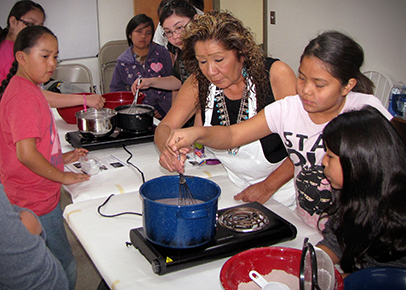As a consumer, I’ve purchased food without ever considering whether it is contaminated with pathogens. I’ve made the assumption that the food is safe. If the label included a small emblem noting that it is “certified,” “inspected” or “organic,” I felt reassured. But after a course on food safety litigation, I am more reluctant to believe that our food is completely safe, especially since there is pushback from the industry and hesitation from regulating authorities. As a result, I’ve recently turned to Navajo teachings and begun analyzing traditional stories for their messages about food safety. I’ve come to the conclusion that Navajo food taboos are stricter than current food laws, thereby offering better protection against pathogens on certain foods. However, like the current laws in place, they are not a guarantee against all types of food adulterants. 
(To sign up for a free subscription to Food Safety News, click here.)
